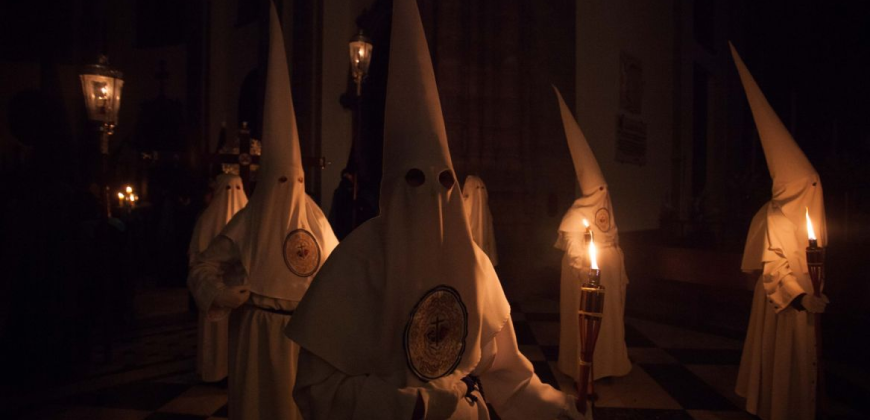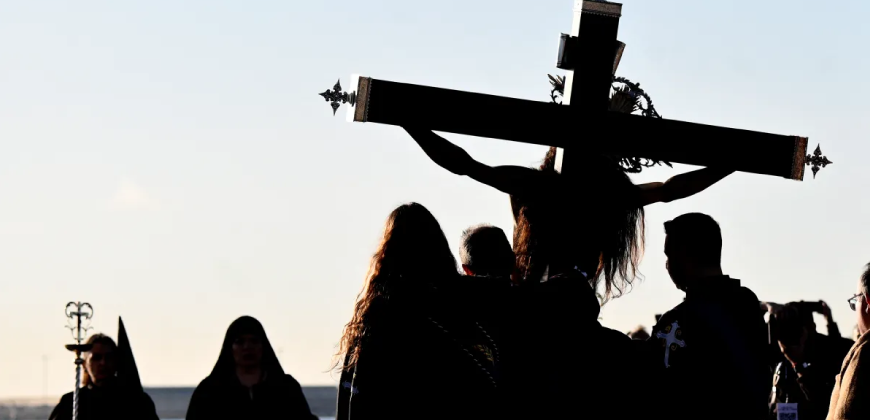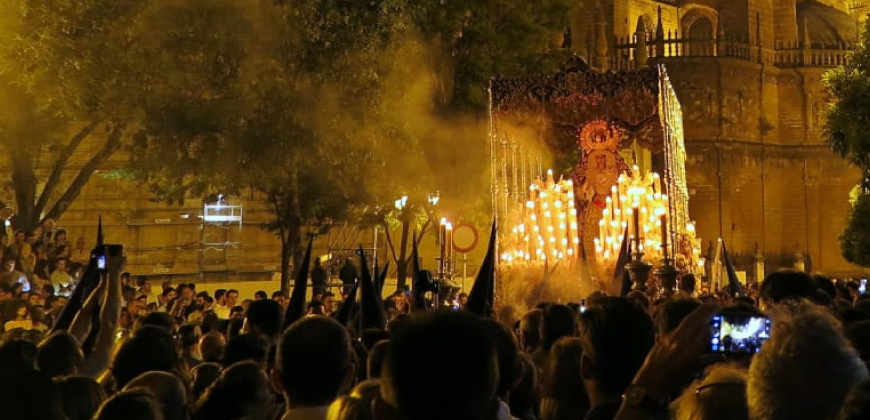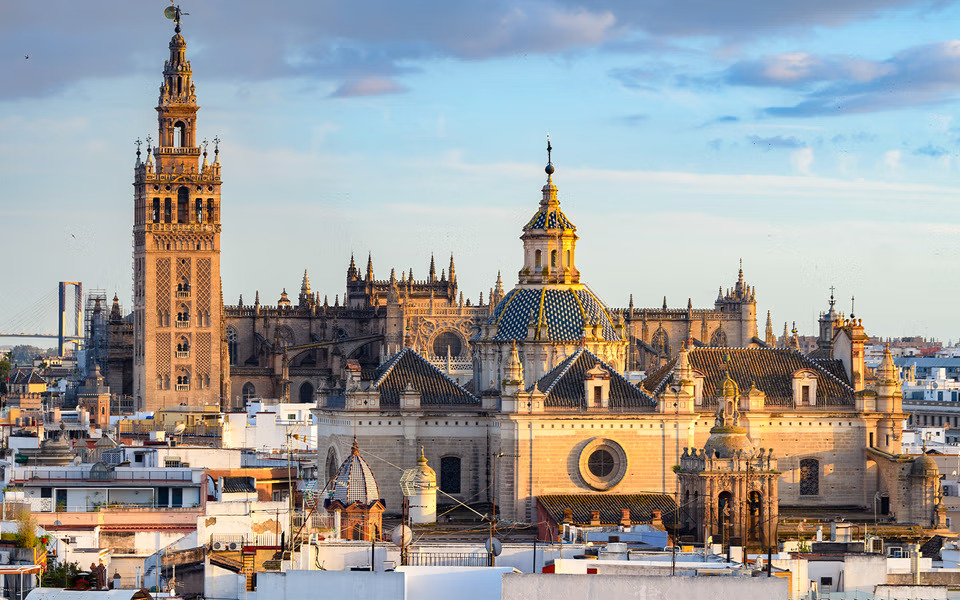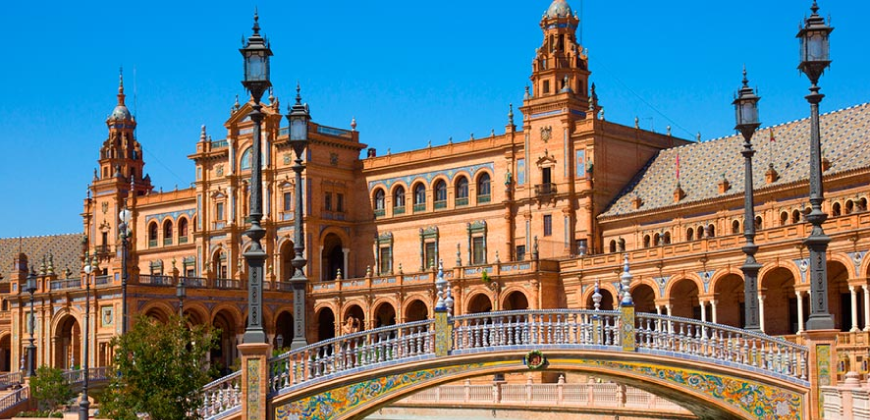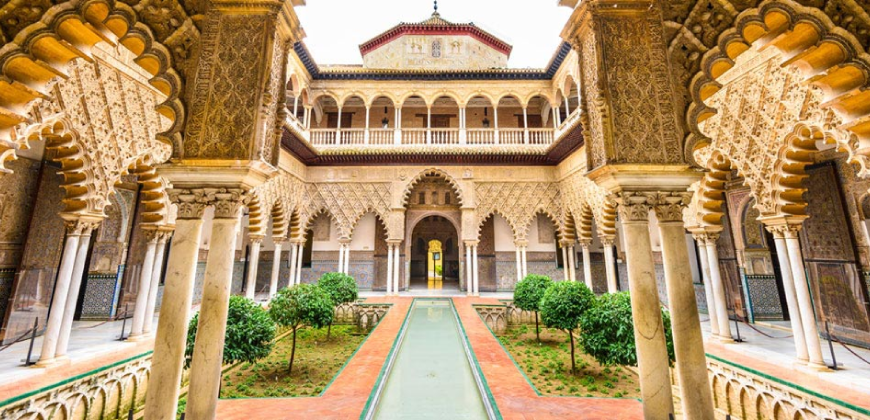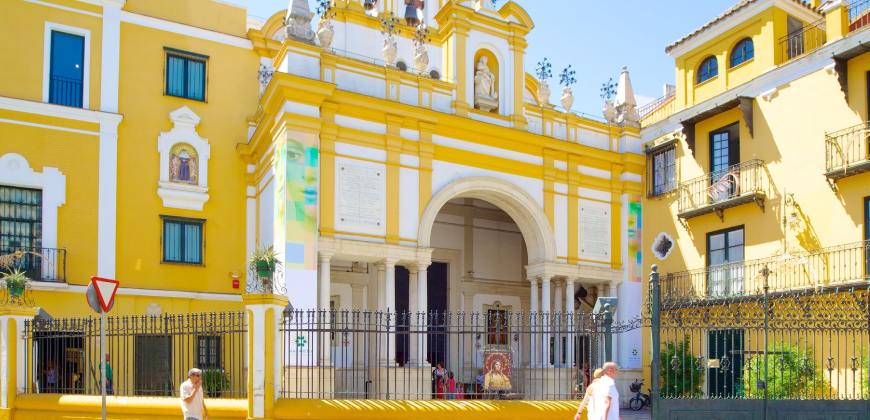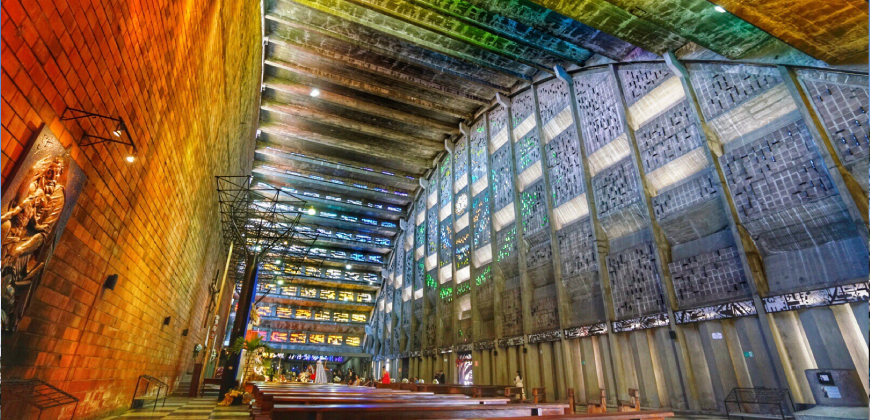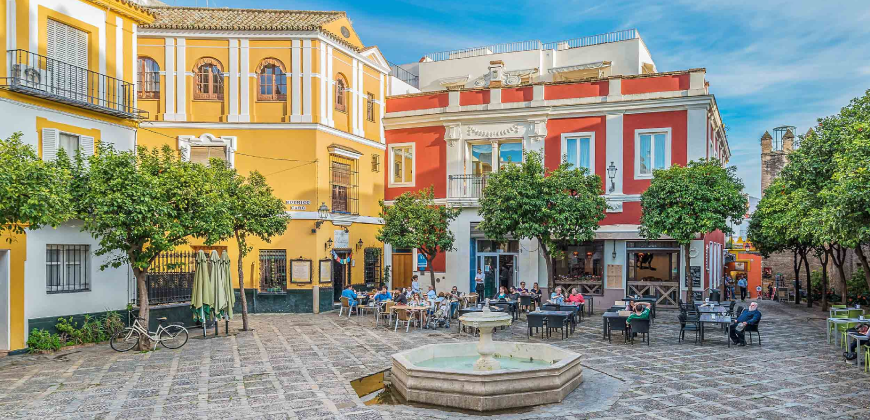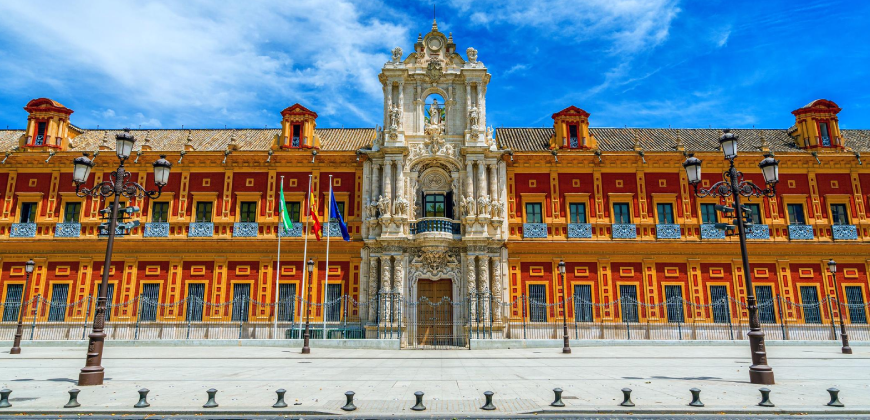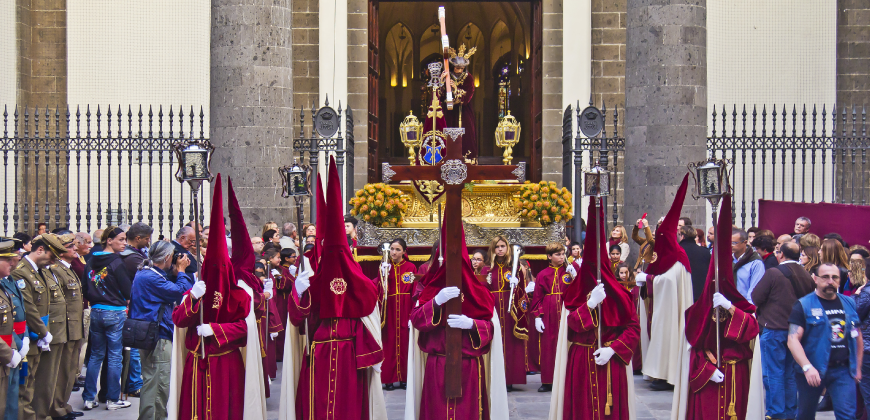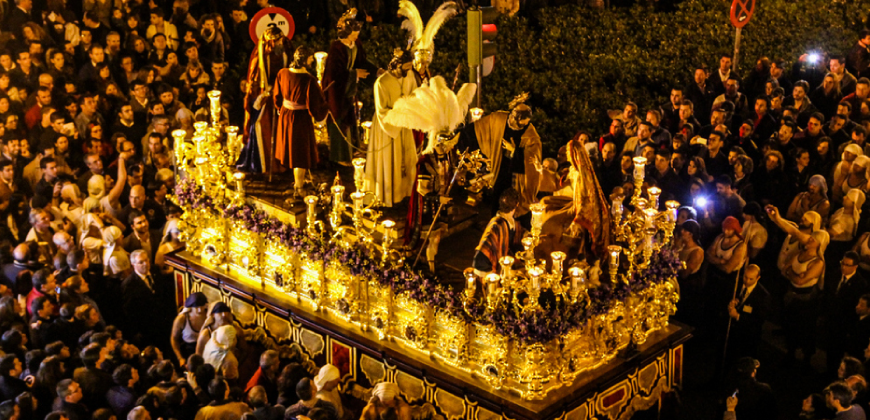
Holy Week, known as Semana Santa in Spanish, is one of the most significant religious and cultural events in Spain, marking the final week of Lent leading up to Easter Sunday. Steeped in centuries-old traditions, Holy Week is celebrated with great fervor and spectacle across the country, with Seville standing out as one of the most iconic destinations for experiencing this deeply meaningful event. In this comprehensive guide, we delve into the origins and significance of Holy Week, explore how it is celebrated in Seville, highlight key attractions and processions, and provide practical tips for tourists looking to immerse themselves in this unforgettable experience.
Understanding Holy Week
Understanding Holy Week is paramount to appreciating its significance in the Christian faith. Holy Week, also known as Semana Santa in Spanish, is a sacred period of religious observance that holds immense importance for Christians worldwide. Commencing on Palm Sunday and concluding on Easter Sunday, Holy Week spans the entire week leading up to Easter, encompassing the final stages of Jesus Christ's earthly ministry.
At its core, Holy Week serves as a solemn commemoration of the passion, death, and resurrection of Jesus Christ. This pivotal series of events forms the cornerstone of Christian theology, representing the ultimate act of sacrifice and redemption. Palm Sunday marks the triumphant entry of Jesus into Jerusalem, symbolizing the beginning of his final journey towards the cross. Throughout the week, various religious services, rituals, and processions are conducted to reenact and reflect upon the events leading to Christ's crucifixion and subsequent resurrection.
For Christians, Holy Week holds profound spiritual significance, encapsulating the central tenets of their faith. It serves as a period of deep introspection, repentance, and renewal, inviting believers to reflect on the profound implications of Christ's sacrifice and resurrection. Holy Week is a time of profound devotion, as Christians seek to follow in the footsteps of Jesus, walking the path of suffering and redemption that ultimately leads to the promise of eternal life.
Furthermore, Holy Week serves as a unifying force within the Christian community, fostering a sense of collective worship and fellowship. Across denominations and cultures, believers come together to participate in Holy Week observances, joining in prayers, processions, and liturgical services that bind them to the shared narrative of salvation history. Through these communal expressions of faith, Christians reaffirm their commitment to the teachings of Jesus Christ and the foundational truths of their religion.
Significance of Holy Week
Holy Week holds profound significance in the Christian faith, representing a sacred period of commemoration, reflection, and spiritual renewal. Its importance transcends mere historical remembrance, as it encapsulates the core tenets of Christian theology and offers believers a transformative experience of encountering the central mysteries of their faith.
Spiritual Reflection and Renewal:
At its essence, Holy Week serves as a time for believers to engage in deep spiritual introspection and renewal.
Through prayer, meditation, and participation in religious rituals, Christians seek to deepen their connection with God and realign their lives with the teachings of Jesus Christ.
The solemnity of Holy Week invites believers to confront their own weaknesses and shortcomings, repent of their sins, and embrace the promise of forgiveness and redemption offered through Christ's sacrifice on the cross.
Commemoration of Christ's Sacrifice:
Holy Week is centered around the commemoration of Jesus Christ's passion, death, and resurrection.
It provides believers with an opportunity to reflect on the profound significance of Christ's sacrifice on the cross, which is understood as the ultimate expression of God's love for humanity and the means of reconciling humanity with God.
Through participation in liturgical services, such as Maundy Thursday, Good Friday, and the Easter Vigil, Christians reenact and meditate upon the events of Jesus' final days, deepening their appreciation for the salvific work accomplished through his death and resurrection.
Symbolism of Salvation:
Holy Week is rich in symbolism, representing the journey from darkness to light, despair to hope, and death to resurrection.
Each stage of Holy Week—from Jesus' triumphant entry into Jerusalem on Palm Sunday to his resurrection on Easter Sunday—holds profound theological significance, conveying the promise of new life and eternal salvation.
The rituals and traditions observed during Holy Week, such as the washing of feet, the veneration of the cross, and the lighting of the Paschal candle, serve as tangible expressions of faith and symbols of God's redemptive power at work in the world.
Community and Communion:
Holy Week fosters a sense of community and communion among believers, as churches and congregations come together to participate in shared worship and devotion.
Through the collective experience of Holy Week observances, Christians reaffirm their unity in Christ and their shared commitment to living out the values of love, compassion, and service.
The celebration of Holy Week transcends denominational and cultural boundaries, bringing together diverse communities of faith in a common expression of devotion and reverence.
Cultural and Historical Significance:
Beyond its religious significance, Holy Week holds cultural and historical importance, influencing art, literature, music, and theater for centuries.
The events of Holy Week have inspired countless artistic and cultural expressions, from religious artworks and musical compositions to literary works and theatrical performances.
Holy Week traditions, such as processions, pageants, and religious dramas, serve as enduring symbols of faith and tradition, connecting believers across time and space with the sacred narrative of Christ's passion, death, and resurrection.
Celebrating Holy Week in Seville
Celebrating Holy Week in Seville is a deeply immersive and spiritually enriching experience, as the city comes alive with vibrant processions, solemn rituals, and fervent devotion. Renowned for hosting some of the most elaborate and captivating Holy Week observances in Spain, Seville offers visitors a unique opportunity to witness centuries-old traditions and participate in the rich tapestry of religious and cultural expression.
Elaborate Processions and Pageantry:
Holy Week in Seville is characterized by its elaborate processions, organized by religious brotherhoods known as hermandades.
Each day of Holy Week features multiple processions, with participants adorned in traditional attire and carrying ornate floats, or pasos, depicting scenes from the Passion of Christ.
The processions wind their way through the narrow streets of Seville, accompanied by the solemn sound of marching bands, the scent of incense, and the fervent prayers of participants and spectators alike.
Historic Churches and Cathedrals as Focal Points:
Seville's historic churches and cathedrals serve as focal points for Holy Week observances, hosting religious services, liturgical rituals, and devotional activities throughout the week.
The Cathedral of Seville, with its awe-inspiring Giralda bell tower and opulent interior, is a central hub for Holy Week events, attracting pilgrims and visitors from around the world.
Other notable churches, such as the Basilica of La Macarena and the Church of El Salvador, also play significant roles in hosting processions and religious ceremonies during Holy Week.
Cultural and Artistic Expression:
Holy Week in Seville is not only a religious event but also a celebration of cultural and artistic expression.
The pasos carried in the processions are exquisite works of art, crafted by master sculptors and adorned with intricate detailing and symbolism.
Music is an integral part of Holy Week observances, with traditional hymns and chants filling the air as processions make their way through the streets.
Holy Week also inspires a range of cultural activities, including art exhibitions, concerts, and theatrical performances, showcasing the rich heritage and creativity of the city.
Spiritual Pilgrimage and Devotion:
For many participants and spectators, Holy Week in Seville is a spiritual pilgrimage, offering an opportunity for deepening their faith and connection to God.
Devotees often spend hours or even days following the processions, walking alongside the pasos and engaging in prayer and contemplation.
The experience of Holy Week in Seville is marked by moments of profound reverence and awe, as believers witness the reenactment of Christ's passion and sacrifice in a tangible and visceral way.
International Appeal and Cultural Exchange:
Holy Week in Seville attracts visitors and pilgrims from around the world, drawn by the city's reputation for hosting one of the most spectacular and authentic Holy Week celebrations in Spain.
The influx of tourists contributes to a vibrant atmosphere of cultural exchange and international solidarity, as people from diverse backgrounds come together to share in the spiritual and cultural richness of the event.
Through their participation in Holy Week observances, visitors gain a deeper understanding and appreciation of Seville's religious heritage and traditions, forging lasting connections with the city and its inhabitants.
Key Attractions During Holy Week in Seville
Exploring the key attractions during Holy Week in Seville offers visitors a profound and unforgettable experience, as the city comes alive with vibrant processions, historic landmarks, and cultural festivities. From awe-inspiring churches to bustling squares filled with the fervor of devotion, Seville offers a plethora of attractions that capture the essence of this sacred and culturally rich event.
Seville Cathedral and La Giralda:
The Seville Cathedral, one of the largest Gothic cathedrals in the world, serves as a focal point for Holy Week observances.
Visitors can marvel at its awe-inspiring architecture, intricate altarpieces, and stunning stained glass windows.
La Giralda, the cathedral's iconic bell tower, offers panoramic views of the city and provides a unique vantage point for observing Holy Week processions.
Plaza de España
The Plaza de España, a majestic square built for the Ibero-American Exposition of 1929, serves as a backdrop for various Holy Week events and gatherings.
Visitors can admire its ornate bridges, ceramic tilework, and tranquil canals, while soaking in the festive atmosphere of Holy Week celebrations.
Real Alcázar
The Real Alcázar, a UNESCO World Heritage Site, offers a tranquil retreat from the hustle and bustle of Holy Week festivities.
Visitors can explore its lush gardens, intricate Moorish architecture, and opulent royal chambers, gaining insight into the rich history and culture of Seville.
Basilica of La Macarena
The Basilica of La Macarena, dedicated to Seville's patron saint, serves as a focal point for some of the most iconic Holy Week processions.
Visitors can admire its stunning Baroque architecture, including its ornate altarpieces, while participating in devotional activities and witnessing the fervent expressions of faith.
Church of El Salvador
The Church of El Salvador, located in Seville's historic center, hosts various Holy Week events and processions.
Visitors can explore its exquisite interior, adorned with intricate artwork and religious artifacts, while immersing themselves in the solemnity and spirituality of Holy Week observances.
Barrio Santa Cruz
The Barrio Santa Cruz, Seville's historic Jewish quarter, offers a charming backdrop for Holy Week processions and celebrations.
Visitors can wander its narrow cobblestone streets, lined with colorful buildings, flower-filled patios, and bustling tapas bars, experiencing the vibrant energy and cultural diversity of the city.
Palace of San Telmo
The Palace of San Telmo, a majestic Baroque palace, hosts cultural events and exhibitions during Holy Week.
Visitors can admire its elegant architecture, ornate façade, and picturesque gardens, while gaining insight into Seville's rich artistic and architectural heritage.
Guide for Tourists
Visiting Seville during Holy Week can be an enriching and memorable experience, but proper planning and preparation are essential to make the most of your trip. Here's a detailed guide to help you navigate Holy Week in Seville like a seasoned traveler:
Plan Your Visit in Advance
Holy Week is one of the busiest times of the year in Seville, with accommodations and transportation options filling up quickly.
To avoid last-minute hassles, book your accommodations well in advance, preferably several months ahead of your planned visit.
Consider staying in the city center or near major attractions to minimize travel time and maximize your experience of Holy Week festivities.
Research the Schedule of Processions and Events
Holy Week in Seville is marked by a diverse array of processions, ceremonies, and events, each offering a unique glimpse into the city's religious and cultural heritage.
Take the time to research the schedule of processions and events, which are typically published in advance by local authorities and religious organizations.
Identify key attractions and processions you'd like to witness, and plan your itinerary accordingly to ensure you don't miss out on any highlights.
Dress Appropriately for the Occasion
Holy Week processions are solemn religious observances, and visitors are expected to dress respectfully and modestly.
Avoid wearing revealing or inappropriate clothing, and opt for conservative attire that reflects the solemnity of the occasion.
Comfortable footwear is essential, as you may be walking long distances and standing for extended periods during processions.
Be Prepared for Large Crowds and Logistical Challenges
Holy Week in Seville draws large crowds of locals and tourists alike, creating a bustling and vibrant atmosphere throughout the city.
Be prepared for crowded streets, especially in popular areas and along procession routes.
Plan your travel routes in advance, taking into account potential road closures and transportation disruptions.
Consider using public transportation or walking to navigate the city during Holy Week, as traffic congestion and parking limitations may pose challenges for drivers.
Consider Participating in Guided Tours or Hiring a Local Guide
To gain deeper insights into the significance and symbolism of Holy Week traditions, consider participating in a guided tour or hiring a local guide.
Knowledgeable guides can provide valuable context and commentary, helping you understand the cultural and religious significance of the events unfolding around you.
Guided tours may also offer privileged access to certain areas or insider tips for navigating the crowds and experiencing Holy Week in Seville to its fullest.
By following these tips and recommendations, you can ensure a smooth and fulfilling experience during Holy Week in Seville, immersing yourself in the rich tapestry of religious devotion, cultural heritage, and communal celebration that defines this iconic event.
Tips for Tourists
Accommodations in Seville fill up quickly during Holy Week due to the influx of tourists. To secure the best options at reasonable prices, it's advisable to book your accommodations well in advance, ideally several months ahead of your trip.
Arrive early to secure a good viewing spot for processions, especially for popular routes and landmarks.
Stay hydrated and carry snacks, as processions can be long and crowded.
Respect local customs and traditions, including refraining from loud conversations and disruptive behavior during religious ceremonies.
Take precautions to safeguard your belongings, as crowded streets can be a target for pickpockets.
Allow yourself to be swept up in the atmosphere and immerse yourself fully in the spiritual and cultural experience of Holy Week in Seville.
Conclusion: Holy Week in Seville is a captivating blend of religious devotion, cultural tradition, and communal celebration, offering visitors a unique opportunity to witness centuries-old rituals and ceremonies in a vibrant and dynamic setting. From the solemn processions to the ornate floats and elaborate pageantry, Holy Week in Seville is an experience that leaves a lasting impression on all who participate. Whether you are drawn to the spiritual significance of the event or simply seeking to immerse yourself in the rich cultural heritage of Spain, Holy Week in Seville promises an unforgettable journey of discovery and reverence.
Powered by Froala Editor
